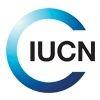
Executive Secretary, Mangroves for the Future
|
MFF builds on a history of coastal management interventions before and after the 2004 tsunami, especially the call to continue the momentum and partnerships generated by the immediate post-tsunami response. It initially focused on the countries worst-affected by the tsunami; India, Indonesia, Maldives, Seychelles, Sri Lanka, and Thailand and expanded to include Bangladesh, Pakistan and Viet Nam. MFF will continue to reach out other countries of the region that face similar issues, with an overall aim to promote an integrated ocean wide approach to coastal zone management.
The initiative uses mangroves as a flagship ecosystem in recognition of the destruction caused to mangroves by the tsunami, but MFF is inclusive of all coastal ecosystems, including coral reefs, estuaries, lagoons, sandy beaches, sea grasses and wetlands. Its long-term management strategy is based on identified needs and priorities for long-term sustainable coastal ecosystem management. These priorities emerged from extensive consultations with over 200 individuals and 160 institutions involved in coastal management in the Indian Ocean Region.
MFF seeks to achieve demonstrable results in influencing regional cooperation, national programme support, private sector engagement and community action. This will be achieved using a strategy of generating knowledge, empowering institutions and individuals to promote good
The Executive Secretary will provide secretarial and administrative support to the MFF Secretariat and facilitate the smooth-running of day-to-day operations as well as provide administrative and logistic support to national and international events.
More specifically, the Executive Secretary will assist with the following tasks as part of general secretarial support and day to day management of operations, information and networking:
1. Maintain appointment diaries, schedule meetings and make appointments.
2. Deal with and record telephone calls, email messages, visitors and queries on the programme/project and IUCN with appropriate actions and responses particularly in the absence of the Line Manager;
3. Organize national and international travel arrangements for project staff (including travel bookings, cash advances, travel approval forms, local pick-ups and transport, visa, accommodation requirements); as well as travel advance reconciliations/reimbursements
4. Provide secretarial and logistical support to national and international training events, workshops, conferences and meetings (including travel arrangements, booking of venue and accommodation, facilitation during events, reporting)
5. Provide secretarial and logistic support to visitors and consultants for MFF (including travel arrangements, accommodation, payments)
6. Support with submitting and tracking of staff time payments, invoices, travel expenses and other payments as appropriate.
7. Develop and maintain a computerized mailing list, as well as an information database on principal contacts and email addresses, telephone and fax numbers as relevant for MFF;
8. Maintain and support the organisational filing and data management systems, in hard copy as well as computerized form as appropriate including monitoring start dates and durations, due dates for related payments,and reminding all parties about pending issues and deadlines accordingly.
9. Ensure that admin / finance / personnel forms are available and used as and when required.
10. Be informed about the movements of and keep in touch with the MFFS staff members with RPD & other secretariat offices.
11. Through regular liaison with office administration and the other Asia Regional Office secretaries, ensure that:
• programme office space is well maintained, neat and secure
• equipment is well maintained
• stationery is supplied and accounted for
12. Maintain the 'corporate' identity of IUCN/MFF by ensuring that all letters, memos, faxes, proposals and reports of the programme and project adhere to the IUCN style;
13. Assist in the preparation of programme documents including helping with the layout and publication of reports.
14. Provide secretarial support to other parts of the office in times of particular stress.
15. Carry out any other relevant tasks as required by, and mutually agreed with, the line manager(s).
|
• Bachelor's degree in Secretarial, Business Administration or other related fields; • At least 3 years work experience in a relevant position (preferably with a similar organization); • Demonstrated ability to work as part of a multicultural, multidisciplinary team; • Proficient in written and spoken English; • Strong computer Literate (Standard software, Internet, E-Mail, etc.); and • Ability to handle multi tasking efficiently and in a timely manner and maintain quality and accuracy of outputs during periods with heavy workloads. |
Applicants are requested to apply online through the HR Management System, by opening the vacancy announcement and pressing the "Apply" button.
Applicants will be asked to create an account and submit their profile information. Applications will not be accepted after the closing date. The vacancy closes at midnight, Swiss time (GMT+1 / GMT+2 during Daylight Saving Time, DST). Please note that only selected applicants will be personally contacted for interviews.
Other job opportunities are published in the IUCN website: https://www.iucn.org/involved/jobs/
About IUCN
IUCN is a membership Union uniquely composed of both government and civil society organisations. It provides public, private and non-governmental organisations with the knowledge and tools that enable human progress, economic development and nature conservation to take place together.
Created in 1948, IUCN is now the world’s largest and most diverse environmental network, harnessing the knowledge, resources and reach of more than 1,400 Member organisations and around 16,000 experts. It is a leading provider of conservation data, assessments and analysis. Its broad membership enables IUCN to fill the role of incubator and trusted repository of best practices, tools and international standards.
IUCN provides a neutral space in which diverse stakeholders including governments, NGOs, scientists, businesses, local communities, indigenous peoples organisations and others can work together to forge and implement solutions to environmental challenges and achieve sustainable development.
Working with many partners and supporters, IUCN implements a large and diverse portfolio of conservation projects worldwide. Combining the latest science with the traditional knowledge of local communities, these projects work to reverse habitat loss, restore ecosystems and improve people’s well-being.
www.iucn.org
https://twitter.com/IUCN
